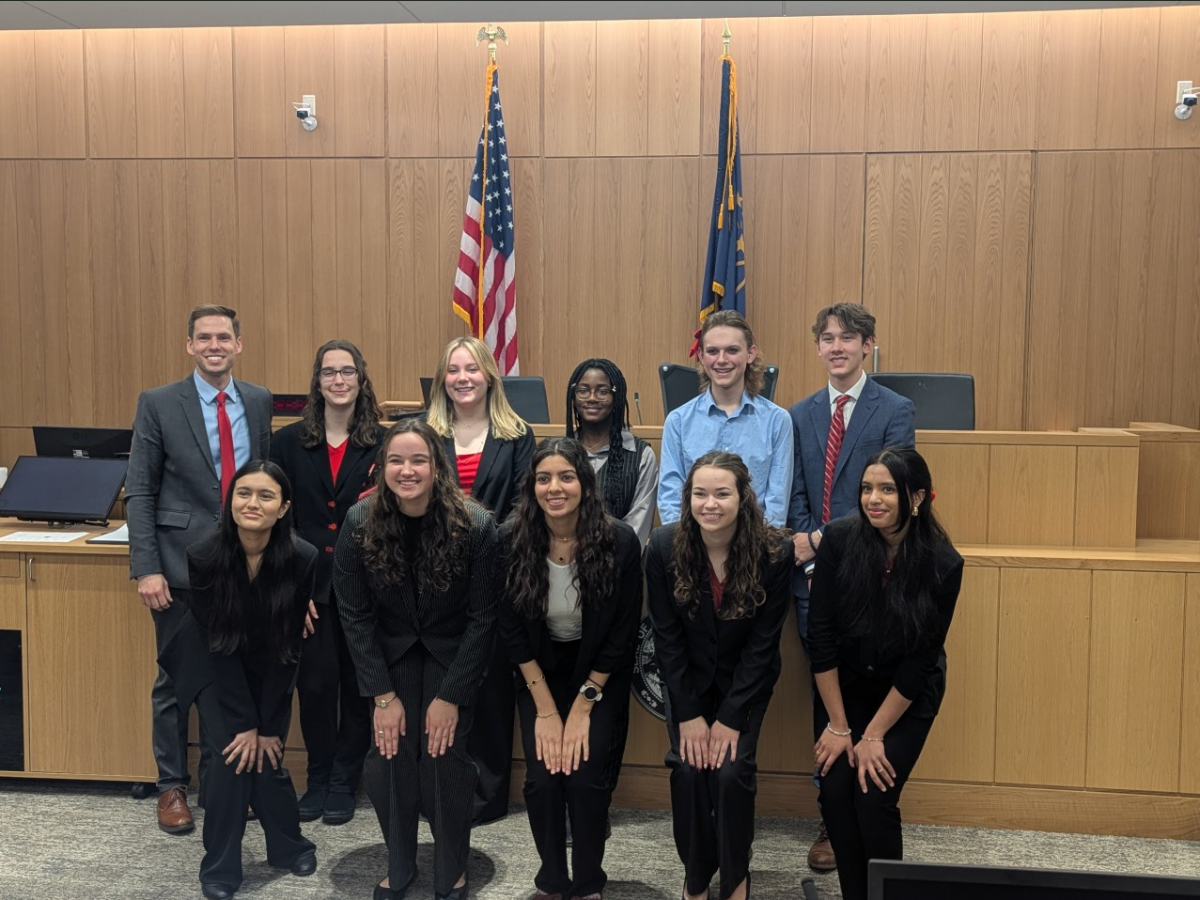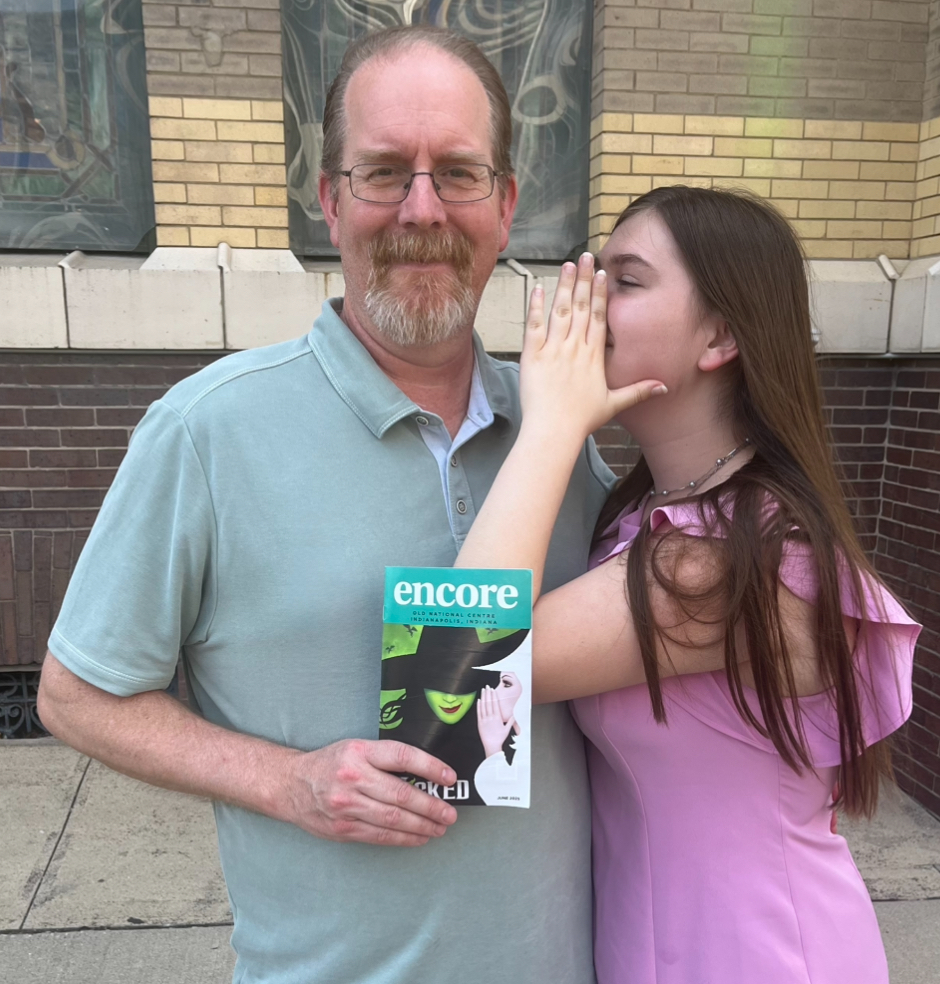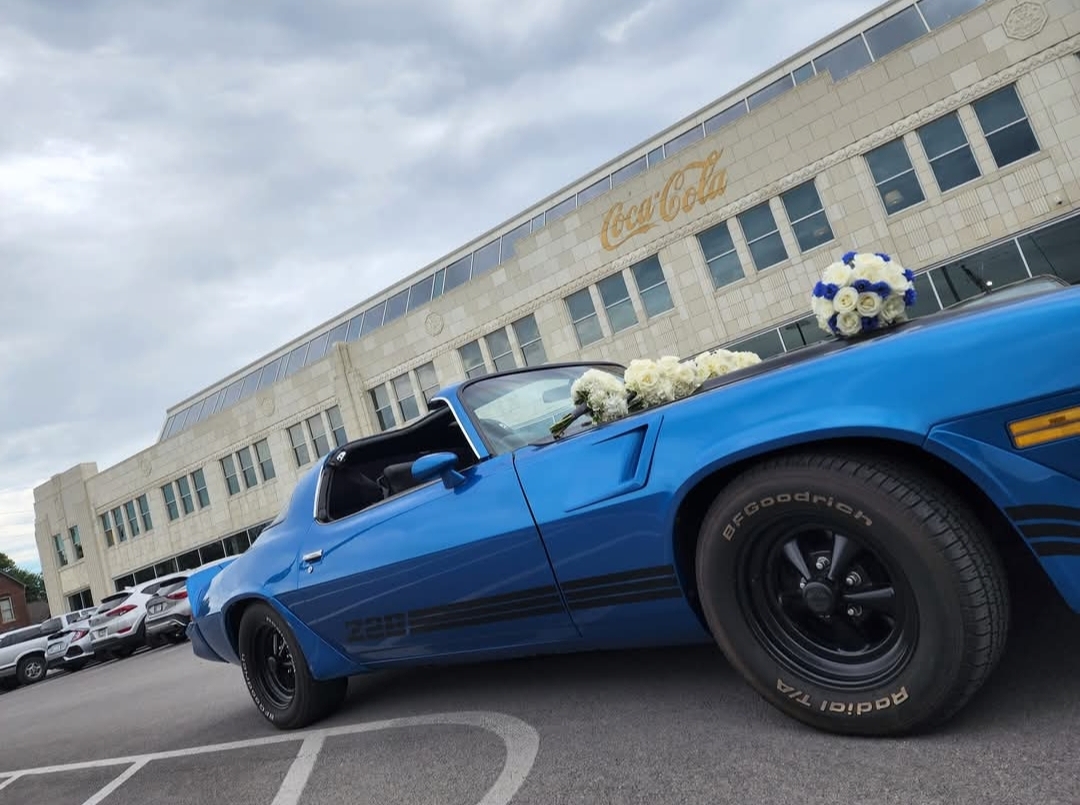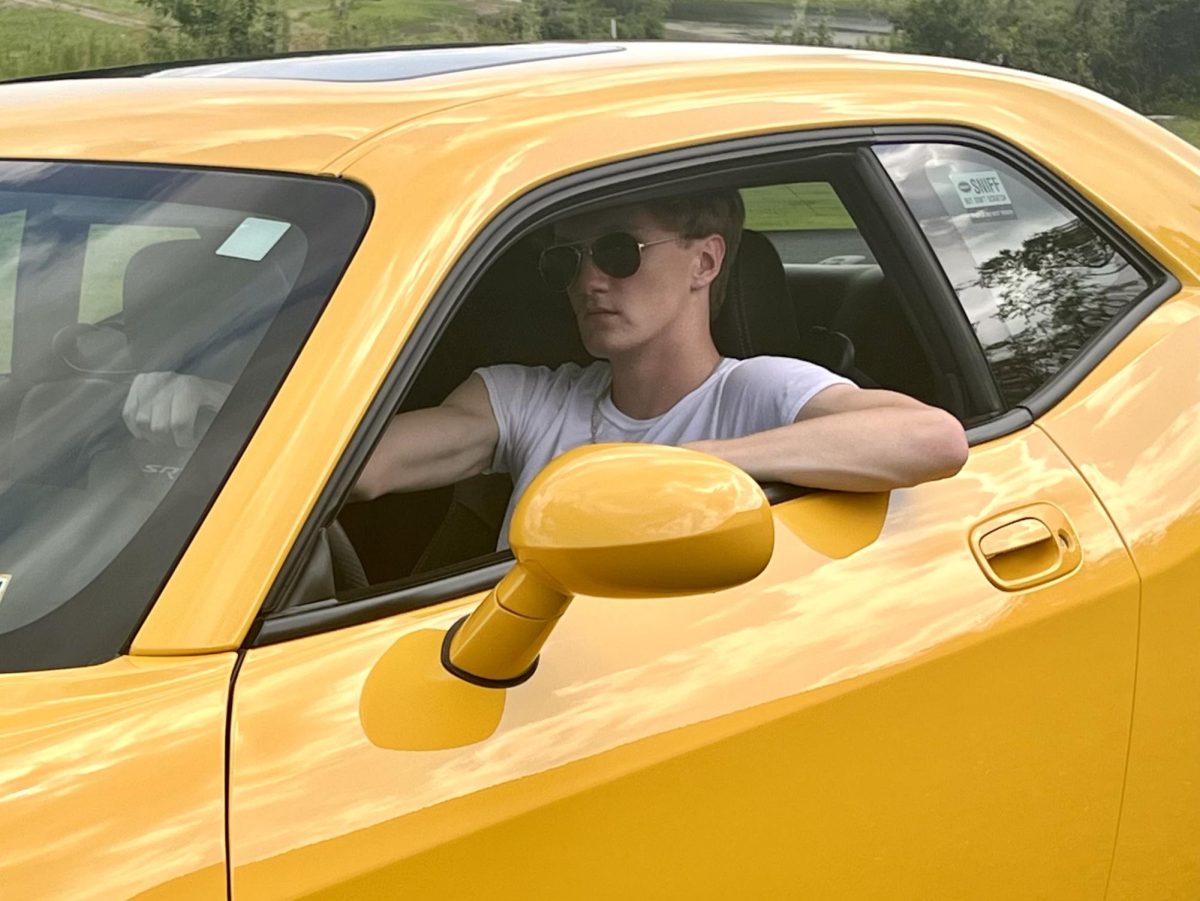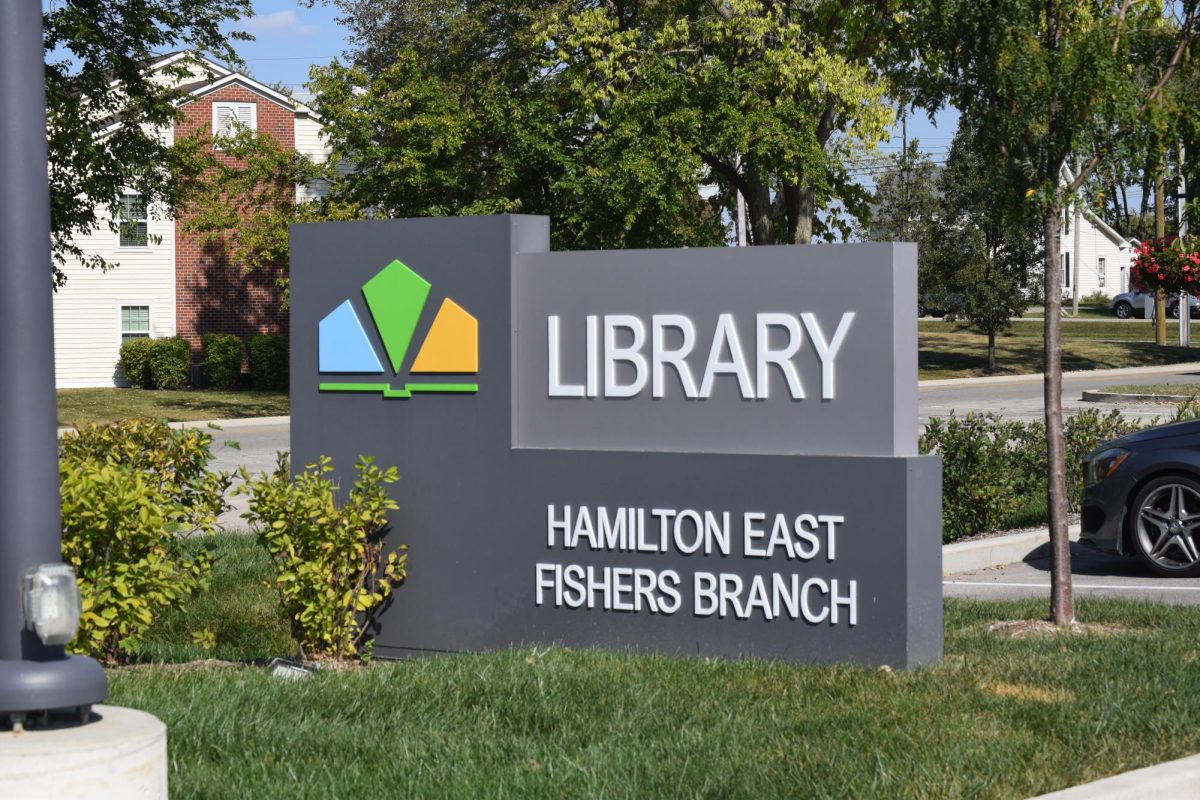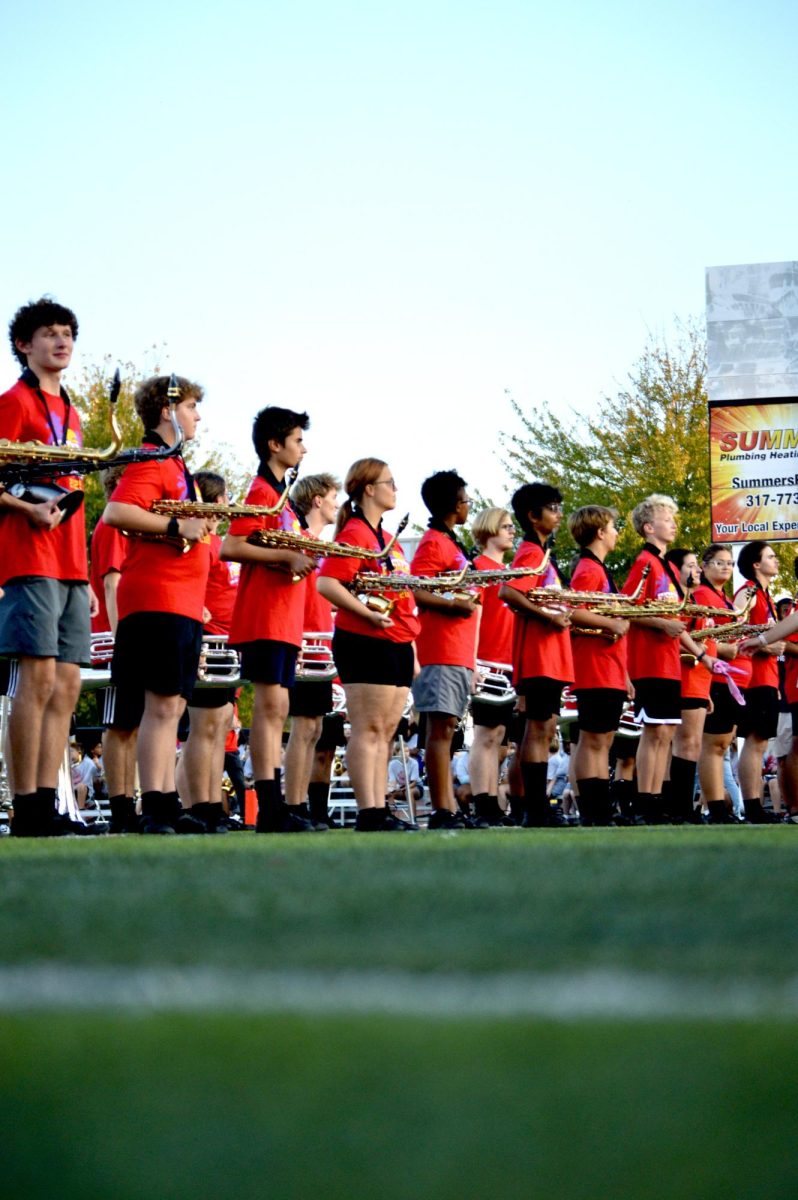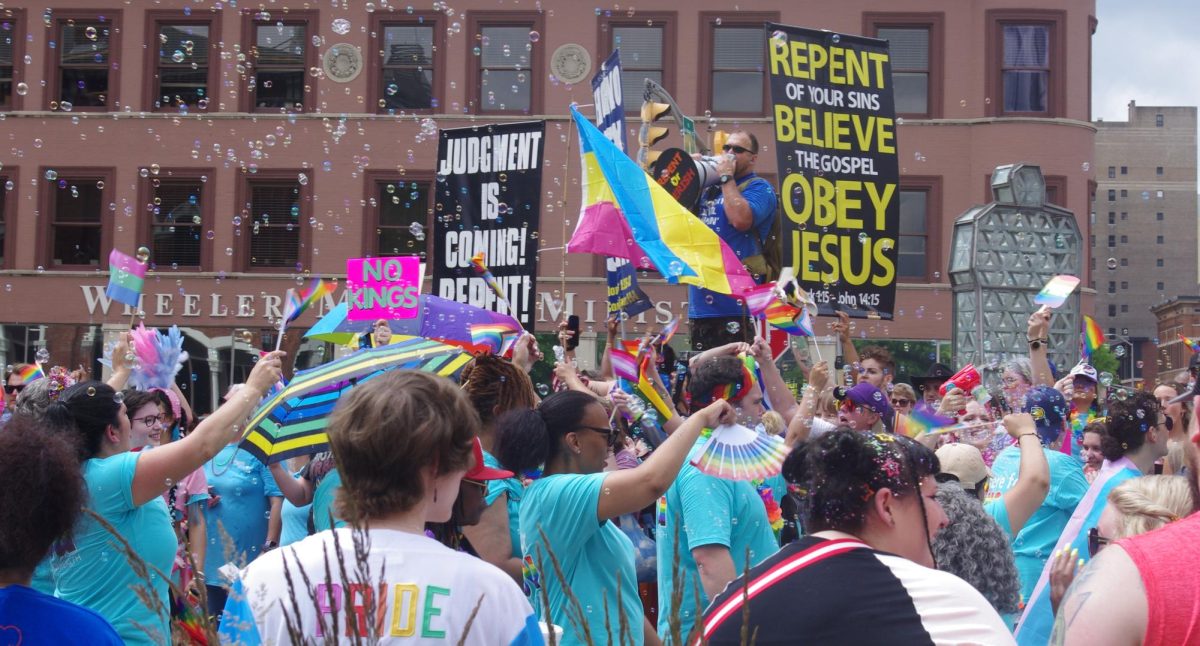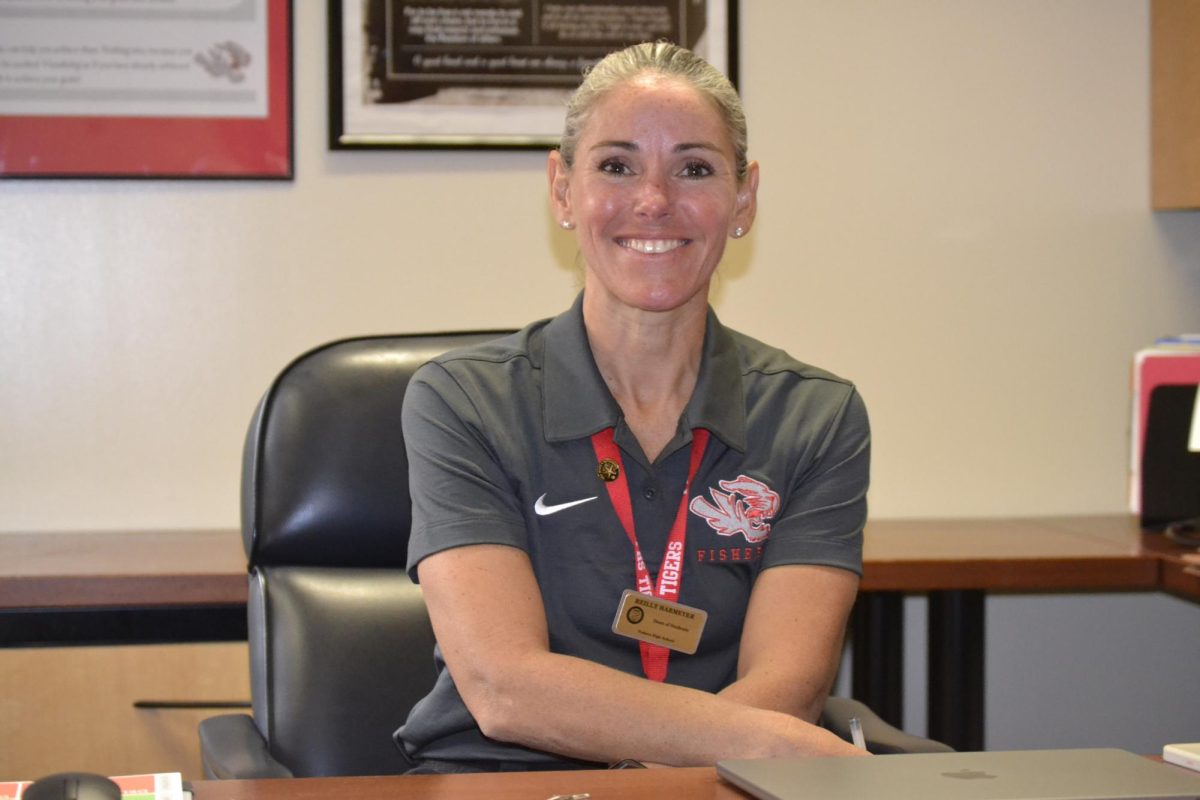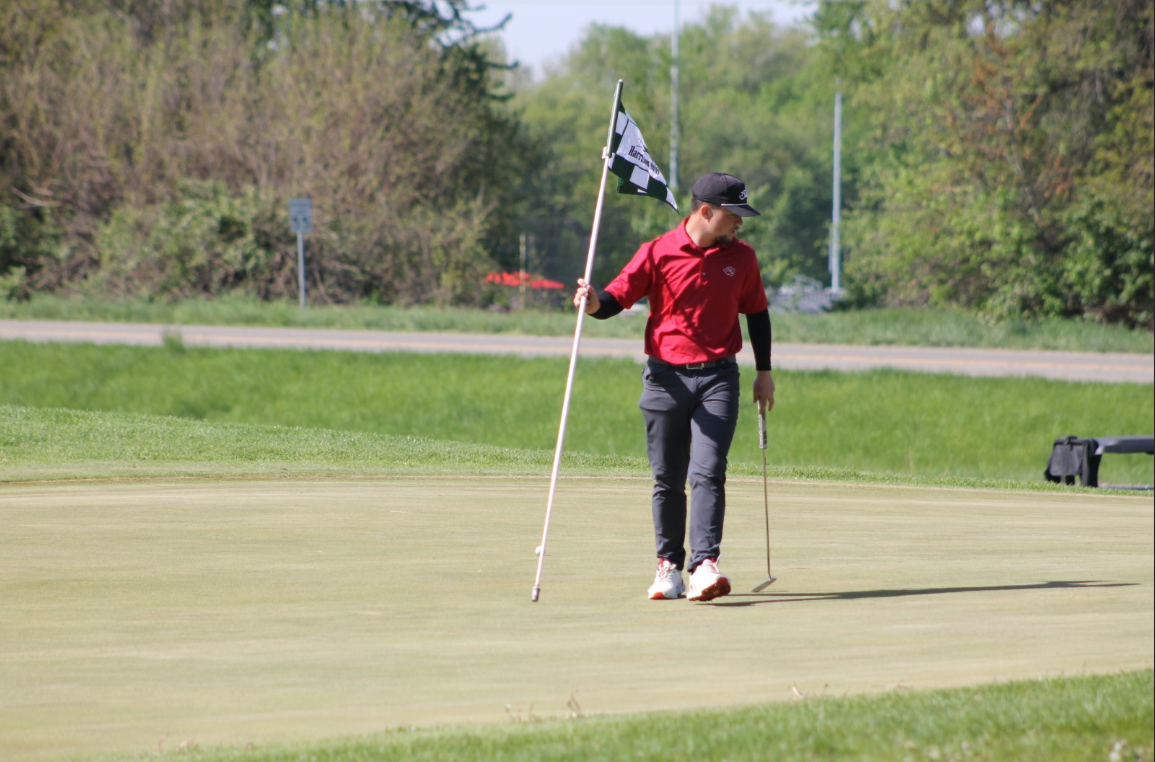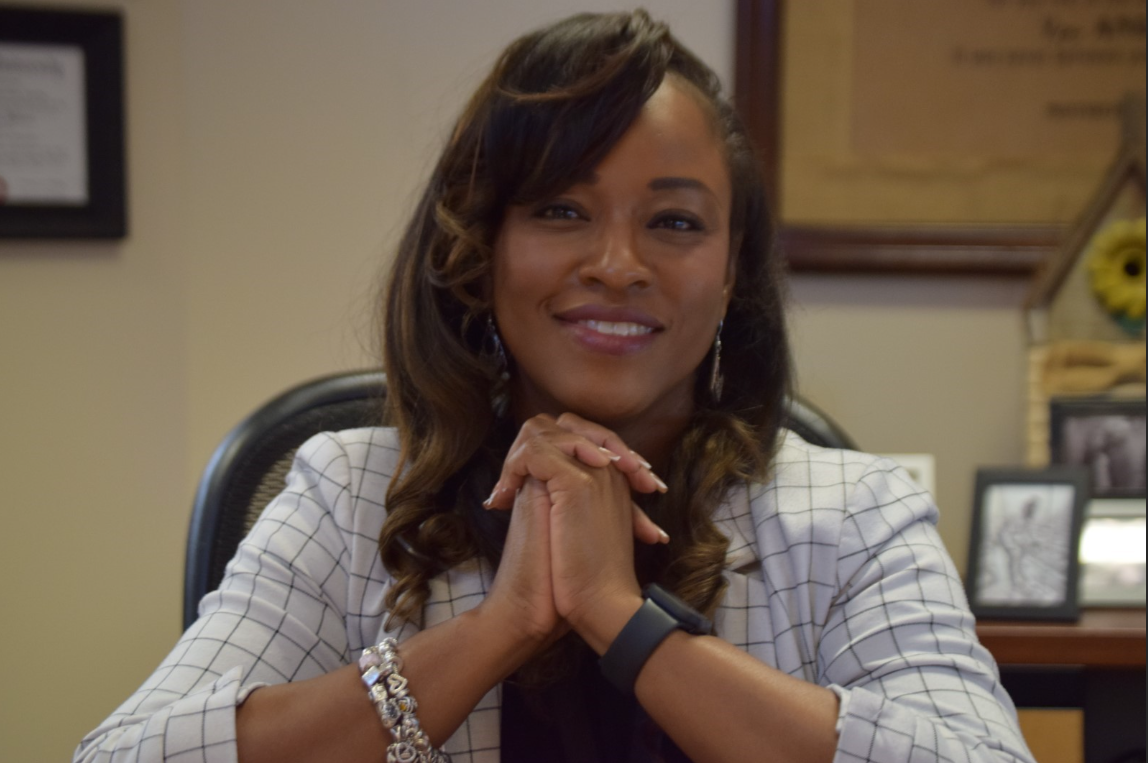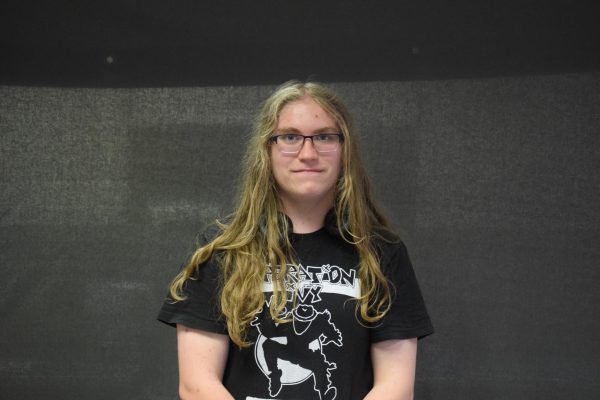This year was a strong season for the Fishers High School Mock Trial program. One of the more unique clubs where they argue fake cases in front of a real judge with a mix of theatrics involved. The mock trial club has a mostly freshman JV team and a Varsity team having five returning members. For the first time ever The JV and Varsity teams competed against each other in the semifinals of the county tournament as a highlight for the program.
Coach Corbin Mathias gave his thoughts about the season, how the teams grew, and what he’s looking forward to in the future.
How do you feel your students have grown from the start of the season to the end of the season?
This has been a huge growing season for us and a hugely successful season for us. The Varsity team had only five members returning from the previous year, and all but two of the team members on the JV team were freshmen this year.
The amount of growth that I’ve seen—both in the students who returned, in their acting abilities, and in their knowledge of the Federal Rules of Evidence and how to object and respond to objections—grew dramatically this year. They reached new heights and new levels.
I was especially impressed with how quickly our students on the JV team picked up, learned and mastered many of those concepts as well.
Because what the students are working with in mock trial are the actual Federal Rules of Evidence. People who do these things—who stand up in a courtroom and say, ‘Objection, Your Honor, hearsay!’—go to college for four years. Then, after getting their bachelor’s degree, they go on to law school for three more years to get their graduate degree in law. And then they stand up in a courtroom and say, ‘Objection, Your Honor, hearsay!’
Are there any changes you want to make next year?
There are always some minor tweaks each year that you want to change. I think about how we do our practices and try to find different strategies.
An extended practice—with just our defense teams and focus exclusively on them. Then, on a different day, I’ll call only the prosecution teams. Sometimes it’s a lot for me during practice to bounce around and help coach both the prosecution side and the defense side. For my brain, that gets a little tricky. But overall, the students did very well. I think things went smoothly.
Each year, the case is different. So, each year, I’m tailoring and tweaking how we practice and when we practice meeting the needs of the students and the case. This year, it was a criminal case, and that required more of my attention—helping make sure the prosecution reached the threshold. They have a much higher bar to clear to convict the person.
In our system of law, in a criminal case, you’re presumed innocent until proven guilty. We’ve all heard that phrase before. In both civil and criminal cases, that is true. But for a criminal case, the jury must convict beyond a reasonable doubt.
In a civil case, it’s more like 51%. If you can reach 51%—’Yeah, I’m pretty sure so-and-so did it’—then you can say that person is responsible. But in a criminal case, you’ve got to reach a bar that’s more like 80% or 85%.
How did it feel this year to watch JV Mock trial to go up against Varsity mock trial during the county tournament?
That was a really special moment. That was really cool.
The Varsity team last year were the County Champions. This year, JV and Varsity met in the semifinals of the county tournament. It was a really special moment because Varsity was returning as the defenders of the championship title, and for the first time ever in school history, our JV team made it to the semifinals.
To be honest, I was very nervous the entire trial—and very excited the entire trial—because I knew one team would win and one team would lose. At the end of the day, half of my students were going to be very excited and happy, and half were going to be very bummed and sad.
But overall, I was very, very proud of the level of growth I saw in both the attorneys and the witnesses. The fact that our two sides faced each other speaks to the caliber of the students and the hard work they put into their witnesses—becoming that person on the stand—and their ability to push back against questions that tried to cut into their credibility.
For our attorneys, it also demonstrated their ability to ask good questions, make a solid case, and object and respond appropriately and effectively to objections against their side.
So, overall—yes, I was nervous, I was excited—but most of all, I was very, very proud.
With the recent success of the JV team do you think they will get the chance to compete alongside Varsity at state?
Once in the past and I think it is just a lot for me as a coach to try to manage two different groups and to try to take both to State. It is also something where the teams at Regionals and at State are exceptionally strong.
I thought our Varsity team was very strong this year. They faced some tough teams, including the eventual state champions. They placed in the top ten, which is great. But the competition can get very, very tough, and very quickly. Many of those cases at that level are decided by razor-thin margins.
It’s a mix of wanting to build the program and have something where JV can compete, hone their skills, and have a good time with that. If I took another, a second team, as a solo coach, that’s a lot of people and a lot of things to manage.
It also gives students an option if they’re interested in law and mock trial but have other time commitments that are important to them. There is a team option that’s less intense than the Varsity team.
The Varsity team—you’re going to Regionals, you’re going to State, and there’s a level of intensity that comes with that mentality and the amount of time and practice dedicated to it. So, it is a mix of all three of those things.
What do you look for when people audition to be a witness or attorney?
If you’re trying out as a witness, we want to see—where are you at with acting ability? Can you convince me? Can I forget for a moment that you’re a 17-year-old student at Fishers High School?
Can I believe that you’re a 45-year-old police officer? Or can I believe that you’re a 32-year-old meteorologist? Or a 67-year-old retired farmer who’s the neighbor next door and heard some things on the night of the event?
With lawyers, we’re looking for your ability to argue, to speak, to present yourself, and to make the case for something in a compelling way.
Is there anything else you would like to add?
Mock trial is a lot of fun. It is a really unique opportunity.
The cases are written to be highly realistic, and they overall very much are. If you are interested in becoming a lawyer, this is definitely an opportunity you want to try out for. You get to work with real lawyers. Besides me as the coach, we also have two attorney coaches that come in from the real world and help our students. We also bring in other legal experts who help coach the team at different times throughout the year.
So, it’s a great way to connect with the world of law and test the waters—see if this is a career you want to pursue. If you’re someone who enjoys debate, argument, and thinking about ideas, or if you enjoy acting and pretending to be someone else, this is for you.
Unlike a play or a musical, this is mostly unscripted. When you’re a witness, you get to answer questions as that person on the witness stand, and you don’t know what questions are coming from the opposing team’s lawyers.
We’ve had students who have been very active in theater, musicals, and plays, and they really enjoy this. We’ve had students who like role-playing games, and they get into being a witness as well. We’ve also had students who enjoy argumentation and debate, and they really like being a witness too.
So, it’s really a blend of all those different things. If anyone has any questions, they’re welcome to stop by and ask me. I’m always happy to talk.


